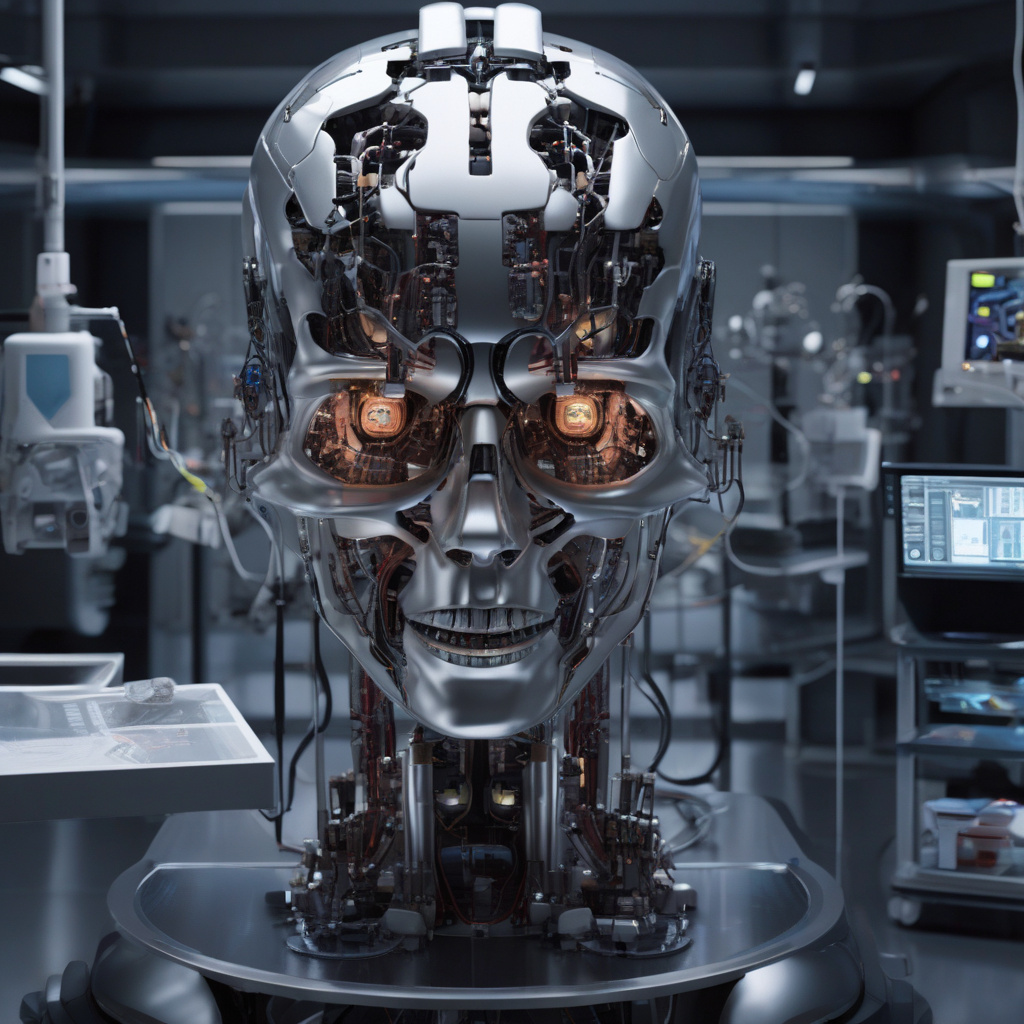Terminator Vibes: AI Robot Builds Robot’s Brain 20x Faster Than Humans
Computer scientist Peter Burke has unveiled a robot that uses generative AI models to train itself, mimicking the process of human learning but at an exponential speed. This groundbreaking innovation heralds a new era in artificial intelligence, where machines are not only capable of self-improvement but can also outpace human abilities in certain tasks.
The robot, designed by Burke’s team at the Institute of Robotics and Artificial Intelligence, leverages advanced algorithms to generate and test hypotheses about how to perform a specific task more efficiently. By continuously refining its approach based on feedback from its actions, the robot can rapidly optimize its performance without the need for external intervention.
One of the most remarkable aspects of this technology is its ability to build neural networks, the digital equivalent of a brain, at a rate 20 times faster than a team of human experts working together. This means that the robot can adapt to new challenges and environments in a fraction of the time it would take for humans to do the same.
For industries where speed and efficiency are of the essence, such as manufacturing, logistics, and healthcare, this AI-powered robot could revolutionize operations. Imagine a production line where robotic workers continuously learn from each other and improve their efficiency over time, leading to higher output and lower costs.
Moreover, the implications of this advancement go beyond just productivity gains. With robots capable of rapidly acquiring new skills and knowledge, we may soon see them take on more complex roles that were traditionally reserved for humans. From conducting scientific research to performing delicate surgeries, the capabilities of AI robots are expanding at an unprecedented rate.
Of course, with great power comes great responsibility. As AI technology continues to advance, ethical considerations around its use become increasingly important. Ensuring that these robots are deployed in a way that benefits society as a whole, without causing harm or displacing human workers, will be a key challenge for policymakers and industry leaders alike.
Despite the potential challenges, there is no denying the transformative impact that AI-powered robots like the one developed by Peter Burke can have on our lives. By harnessing the power of generative AI models, we are not only creating smarter machines but also pushing the boundaries of what is possible in the realm of artificial intelligence.
In conclusion, the era of AI robots building their own brains faster than humans is no longer a distant sci-fi fantasy but a tangible reality. As we continue to unlock the full potential of this technology, the possibilities for innovation and progress are truly limitless.
#AI, #Robotics, #ArtificialIntelligence, #Innovation, #FutureTech












